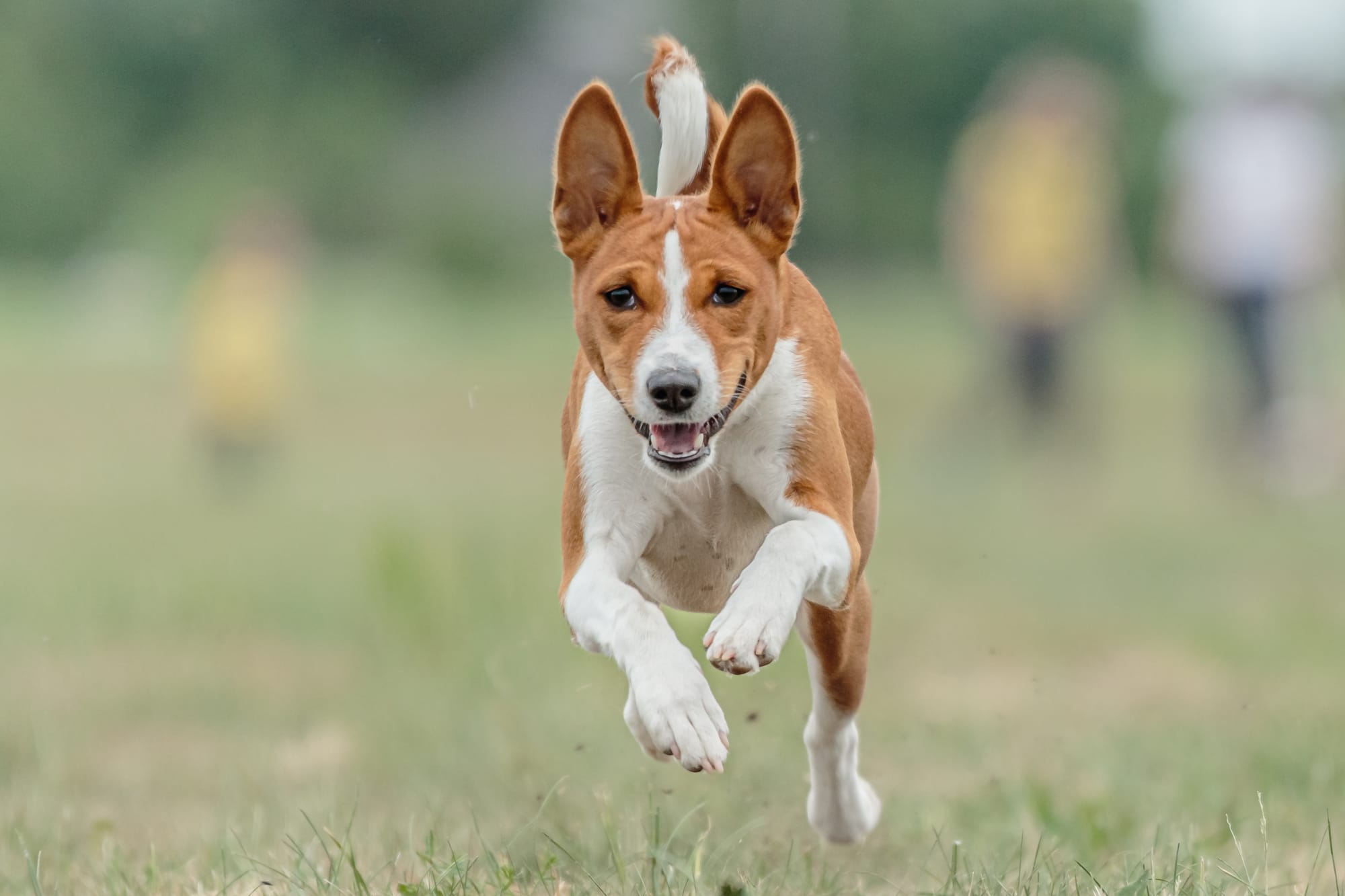Basenjis are known for their unique physical characteristics and their independent nature. These dogs are often referred to as the "barkless" breed, as they produce a yodel-like sound instead of barking. Basenjis are also known for their high energy levels and their need for mental and physical stimulation. However, one question that many potential Basenji owners have is whether or not these dogs can be left alone.

When it comes to leaving a Basenji alone, it's crucial to consider the breed's independent nature. Basenjis are known for being able to entertain themselves, and they often prefer to do so. However, this doesn't mean that they can be left alone for long periods without any human interaction. Here, we will explore whether or not Basenjis can be left alone and what steps owners can take to ensure their dogs' well-being when they are away.
Understanding Basenji's Nature
Basenjis are an ancient breed of dog that originated in Africa. They are known for their independent nature, intelligence, and hunting instincts. Understanding their nature is essential for anyone considering owning a Basenji.
Independent Personality
Basenjis are independent dogs that have a mind of their own. They are not the type of dog that will blindly follow commands without question. This independent nature can make them challenging to train, but it also makes them unique and interesting companions.

Intelligence and Training
Basenjis are intelligent dogs that can quickly learn new commands and tricks. However, their independent nature can make training a challenge. Positive reinforcement training techniques work well with Basenjis, and it's essential to be patient and consistent when training them.
Prey Drive and Hunting Instincts
Basenjis have a strong prey drive and hunting instincts. They were originally bred to hunt small game, and this instinct is still present in the breed today. It's crucial to keep this in mind when owning a Basenji and to ensure that they are kept on a leash or in a secure area when outside.
Behavioral Traits When Left Alone
Basenjis are known for being independent and self-sufficient dogs. However, this doesn't mean that they can be left alone for long periods without any consequences. In this section, we will discuss the behavioral traits of Basenjis when left alone.
Separation Anxiety
Basenjis are prone to separation anxiety, a condition that causes dogs to become anxious and stressed when left alone. Separation anxiety can lead to destructive behaviors, excessive barking, and even self-harm. Basenjis that suffer from separation anxiety may become destructive and chew on furniture or other household items. They may also try to escape from the house or crate, which can lead to injuries.
Potential Destructive Behaviors
Basenjis are intelligent and curious dogs that need mental and physical stimulation. When left alone for long periods, they may become bored and engage in destructive behaviors. They may chew on furniture, dig holes in the yard, or even try to escape from the house. Providing your Basenji with toys, puzzles, and other forms of mental stimulation can help prevent destructive behaviors.
Communication: Bark, Yodel, and Whine
Basenjis are known for their unique vocalizations, including barks, yodels, and whines. When left alone, Basenjis may bark excessively or yodel to express their distress. Some Basenjis may also whine or howl when left alone. It's essential to understand your Basenji's vocalizations and body language to determine if they are distressed or anxious.
Exercise and Stimulation Needs
Basenjis are an active breed that requires regular exercise and mental stimulation to maintain their physical and mental health. Without proper exercise and stimulation, they can become bored, destructive, and even develop behavioral problems.
Physical Exercise Requirements
Basenjis are natural runners and require daily exercise to keep them healthy and happy. They enjoy long walks, jogs, and hikes, as well as playing fetch and other games that involve running. A fenced yard is ideal for providing them with the space they need to run and play, but they should never be left unsupervised.
It is recommended that Basenjis receive at least 30 minutes of exercise per day, but they will happily take more if it is offered. They are also great candidates for dog sports such as agility, lure coursing, and flyball.
Mental Stimulation
In addition to physical exercise, Basenjis require mental stimulation to keep them mentally sharp and prevent boredom. They are intelligent dogs that enjoy learning new things and solving puzzles. Training sessions that involve positive reinforcement and reward-based training are a great way to provide mental stimulation and improve their behavior.
Basenjis also enjoy playing with toys that challenge their minds, such as puzzle feeders and interactive toys. Providing them with chew toys and bones can also help keep them occupied and prevent destructive behavior.
Hence, Basenjis requires a combination of physical exercise and mental stimulation to keep them happy and healthy. With proper care and attention, they can be left alone for short periods without issue.
Training and Socialization
Basenjis are highly intelligent dogs that require consistent training and socialization. Training a Basenji from a young age is essential to ensure they develop good behavior and obedience skills.

Basic Obedience Training
Basic obedience training should include commands such as sit, stay, come, and heel. Basenjis are independent dogs that can be stubborn at times, so it's important to use positive reinforcement techniques such as treats, praise, and playtime to encourage good behavior.
Training sessions should be short but frequent to prevent boredom and ensure the dog stays engaged. Consistency is key, and owners should use the same commands and techniques every time they train their Basenji.
Socialization with Other Pets
Basenjis have a strong prey drive, and their hunting instinct can make them aggressive towards small animals such as cats. Early socialization with other pets is crucial to prevent any aggressive behavior towards other animals.
Owners should introduce their Basenji to other pets in a controlled environment and supervise their interactions. Positive reinforcement techniques should be used to encourage good behavior towards other animals.
Home Environment and Lifestyle
Suitability for Apartment Living
Basenjis are known to be adaptable dogs and can adjust to living in an apartment as long as their exercise needs are met. They are not particularly fond of being cooped up indoors for extended periods, so owners should ensure they have plenty of opportunities to exercise and explore the outdoors. Basenjis are also known to be independent, which can make them well-suited for apartment living as they do not require constant attention or stimulation.
Adapting to Being Alone
Basenjis are independent dogs that can be left alone for short periods. However, they do not do well with extended periods of isolation and may become destructive or develop separation anxiety if left alone for too long. Owners should ensure that their Basenji has plenty of mental and physical stimulation to keep them occupied while they are away. Providing puzzle toys, and chew toys, and leaving the radio or TV on can also help to alleviate boredom and anxiety.
Hence, Basenjis can adapt to diverse living situations, including apartment living and being left alone for short periods. However, owners should ensure that Basenji's exercise and mental stimulation needs are met to prevent destructive behaviors and separation anxiety.
Health and Grooming
Basenjis are generally healthy dogs with a lifespan of 12-16 years. However, like all breeds, they are prone to specific health issues that owners should be aware of. Additionally, proper grooming is essential to maintain their unique coat and minimize shedding.
Common Health Issues
One of the most common health issues in Basenjis is Fanconi Syndrome, a kidney disease that affects the dog's ability to absorb nutrients. Symptoms include excessive thirst and urination, weight loss, and lethargy. Basenjis should be tested for this disease at a young age and monitored throughout their life.
Another health concern is hip dysplasia, a condition where the hip joint doesn't develop properly, leading to arthritis and pain. Regular exercise and a healthy diet can help prevent this condition.
Basenjis are also prone to eye problems such as progressive retinal atrophy (PRA), which can lead to blindness. Regular eye exams by a veterinarian can help catch this condition early.
Grooming and Shedding
Basenjis have a short, fine coat that requires minimal grooming. Weekly brushing with a soft-bristled brush can help remove loose hair and keep their coat shiny. They are also known for their lack of doggy odor and rarely need baths.
Basenjis do shed, but not excessively. Regular brushing can help minimize shedding. They also have a unique grooming habit of cleaning themselves like cats, which helps keep their coat clean and shiny.
In addition to regular grooming, owners should also provide their Basenji with a healthy diet, regular exercise, and routine veterinary care to maintain their overall health and well-being.

Choosing the Right Basenji
When it comes to choosing a Basenji, there are a few things to consider. This breed is known for being independent and stubborn, which can make them difficult for some owners to handle. However, with the right training and socialization, they can make great family pets.
Selecting a Breeder
If you are interested in getting a Basenji from a breeder, it is important to do your research. Look for a breeder who is reputable and has a good track record of producing healthy, well-adjusted puppies. You can ask for references or check online reviews to help you make your decision.
When you visit the breeder, take note of the living conditions of the dogs. Are they kept in clean, comfortable surroundings? Do they have access to plenty of food and water? Are the dogs friendly and well-socialized? These are all crucial factors to consider when selecting a breeder.
Considering a Rescue Basenji
If you are interested in adopting a Basenji from a rescue group, many organizations specialize in this breed. These groups often have dogs of all ages, from puppies to seniors, and can help you find the right dog for your family.
When considering a rescue Basenji, it is required to ask about the dog's temperament and history. Some rescue dogs may have behavioral issues that need to be addressed, while others may be perfectly well-adjusted and ready for their forever home.
Practical Advice for Basenji Owners
Daily Routine and Schedules
Basenjis are highly energetic dogs and require plenty of exercise and mental stimulation to prevent boredom and destructive behavior. It is recommended to take them for a walk at least twice a day and provide them with toys and games that challenge their intelligence.
When leaving Basenji alone, it is important to ensure that they have access to fresh water and a comfortable place to rest. It is also recommended to leave them with toys or puzzles that can keep them occupied while alone.
Safety and Containment
Basenjis are known to be escape artists and can easily slip out of collars or harnesses. It is suggested to use a secure harness and leash when walking them and to ensure that they are always supervised when outside.
When leaving a Basenji alone, it is essential to ensure that they are contained in a secure area such as a crate or gated room. Basenjis are known to be destructive when left alone, so it is necessary to remove any items that may be harmful or valuable.
It is also recommended to have a backup plan in case of emergency, such as a trusted neighbor or friend who can check on the Basenji if needed.
Overall, with proper training, exercise, and containment, Basenjis can be left alone for short periods. However, it is crucial to prioritize their safety and well-being.
Basenji Clubs and Communities
Basenji Clubs and Communities are excellent resources for Basenji owners who have to leave their dogs alone for extended periods. The Basenji Club of America (BCOA) is a great place to start. The BCOA provides a wealth of information about the Basenji breed, including breed history, health concerns, and training tips. The BCOA also has a directory of Basenji breeders in the United States and Canada.
The American Kennel Club (AKC) is another valuable resource for Basenji owners. The AKC provides information about the Basenji breed standard, as well as resources for training and health care. The AKC also offers events and competitions for Basenji owners, such as dog shows and obedience trials.
Basenji communities, such as online forums and social media groups, can also be helpful for owners who have to leave their dogs alone. These communities provide a platform for owners to share their experiences and advice. They can also be a great source of emotional support for owners who feel guilty about leaving their dogs alone.

Conclusion
In conclusion, while Basenjis are known for their independence, responsible pet ownership requires careful consideration of their needs. By understanding their unique traits, providing a stimulating environment, and incorporating positive reinforcement, Basenjis can adapt well to being left alone. Remember, a happy and content Basenji is a result of a well-thought-out routine and a loving, understanding owner.
FAQs
- How long can a Basenji be left alone?
- Basenjis can handle short periods alone if introduced gradually. However, prolonged solitude may lead to stress and behavioral issues.
- Do Basenjis suffer from separation anxiety?
- Yes, like many breeds, Basenjis can experience separation anxiety. Recognizing the signs and implementing strategies is essential for their well-being.
- Is getting a second dog a solution to loneliness for Basenjis?
- Introducing a second dog can be a solution, providing companionship and social interaction for Basenjis.
- What are some signs of boredom in Basenjis?
- Destructive behaviors, excessive barking, and restlessness are common signs of boredom in Basenjis.
- Can professional assistance like dog walkers or daycare benefit Basenjis?
- Yes, professional assistance can provide companionship and break up the day, benefiting Basenjis with busy owners.